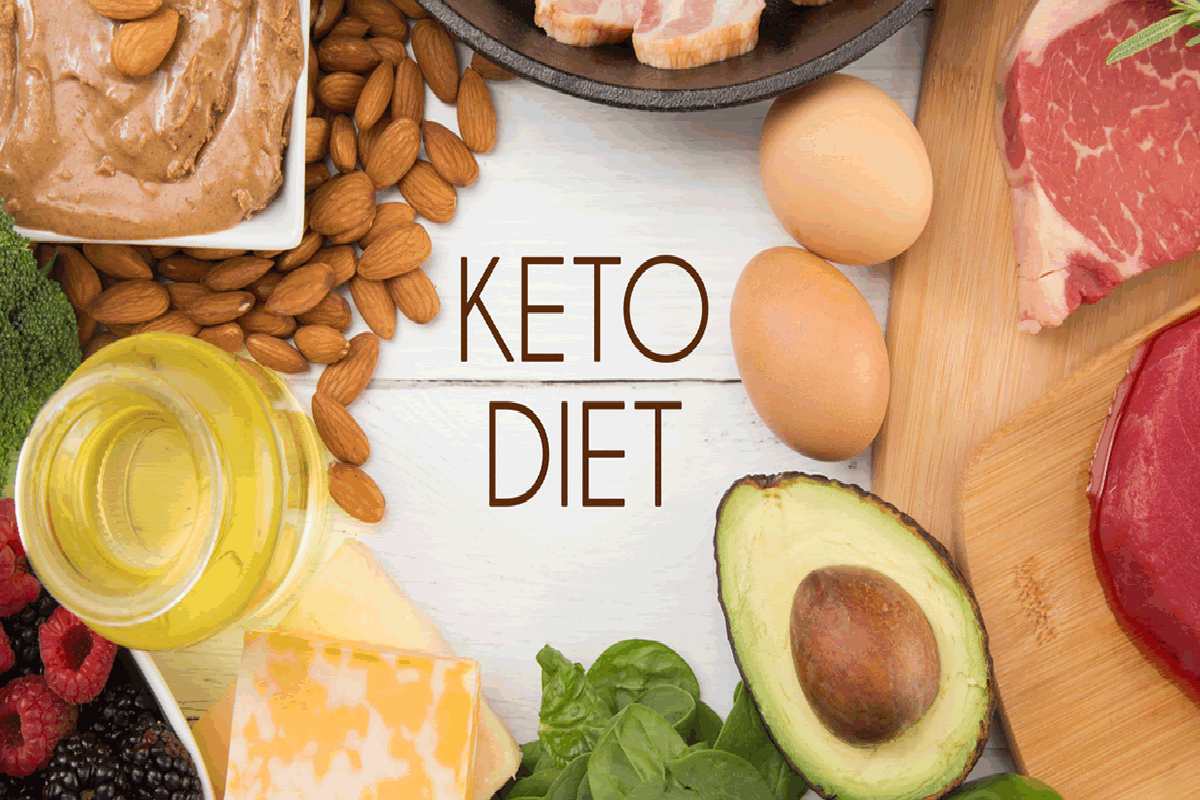
What is Ketogenic Diet? – Definition, Benefits, Risks, and More
Table of Contents
Ketogenic Diet Definition
A ketogenic diet is low in carbohydrates, low in flours, starches, and vegetable carbohydrates, which later transform into glucose, and rich in fat.
It’s that simple instead of taking energy from glucose, and the body takes it from fat.
Our body uses glucose to produce caloric energy. When blood sugar drops, when consuming it.
For example, doing sports, fasting, or starving, the body alternates the energy source and the intake of fats deposited in different parts of our body.
If we starve for a long time, the ketogenic diet puts the body in a so-called “ketosis state,” that is, it consumes fat.
The name comes from the “ketone bodies,” components derived from fats and essential for survival since they are activated if there is an absence of sugars.
If you limit your sugar intake extremely, you force the body to use up all the glycogen, a stage of glucose, stored in the liver.
And when glucose runs out, the body switches “fuel” and begins to burn fat, entering a state of ketosis after a certain period, which can take between two and four days.
What are the Benefits of the Ketogenic Diet?
- The most significant advantage of the ketogenic diet is that in many people.
- And ketone bodies’ production increase, satiety increases, which improves adherence to diet and weight loss.
- Another benefit is that ketone bodies use by the brain as a source of energy, and this is useful in some diseases of the nervous system.
- It also investigates whether ketone bodies in the brain improve healthy people’s specific cognitive abilities, such as attention. At that moment, some results seem encouraging.
- Another of its most striking effects is that its follow-up and complementary cancer treatment can
improve the prognosis in some types of tumors. - It probably because it reduces inflammation and insulin production, which contribute to tumor progression.
- Another advantage ketogenic diet or keto diet, planning it always and adequately without increasing saturated fats or ultra-processed foods.
- Cholesterol reduction
- Improvement of the intestinal microbiota. We explain what the intestinal microbiota is and why it is essential.
- Increased anti-inflammatory activity
- Better insulin sensitivity
- It seems that the ketogenic diet excellent is, right Well, read on because it also has its risks, and you must know them so as not to harm your health.
Why the Risks ketogenic diet?
- The keto diet’s main risk is that, like all diets that restrict food, if not followed correctly. It implies a shortage of micronutrients, but also, the fact that it is high in fat can lead to other side effects.
1. Increased Risk of Osteoporosis
- It neglects the intake of magnesium and calcium and the fact that we do not include abundant vegetables.
- We are more likely to develop acidosis. And process that increases the excretion of these minerals in the urine, reducing bone regeneration.
2. Constipation
- Again the insufficient supply of vegetables, which are the primary source of fibers.
- And the only ones capable of preventing this disorder.
- To avoid this, we can also include in the diet menus seeds such as chia or flax, very rich in soluble fibers, which also have a prebiotic effect (improve the intestinal microbiota).
3. Cardiac Risk
- In predisposed people, carbohydrates’ consumption complete very drastically.
- The body does not have time to adapt to the metabolism and disorders.
- Such as arrhythmias may appear, so I always recommend that the decrease in carbohydrates is gradual, in addition to advising against this diet in people with heart disease.
4. Hyperlipidemia
- When the ketogenic diet is not well planned and saturated fats significantly increased.
- We can find that cholesterol and triglycerides rise, although this increase is usually temporary.
- The fats must come mainly from cardio-healthy foods, such as virgin olive oil, avocado, or walnuts, not chorizo, cheeses, or bacon.
5. Thyroid Slowing
- Low-carbohydrate diets slow down thyroid gland function. And the ketogenic diet is generally discouraged in people with hypothyroidism.
- On the other hand, this diet’s anti-inflammatory effect can improve some types of hypothyroidism, so if you want to try it, you should always put yourself in the hands of professionals.


